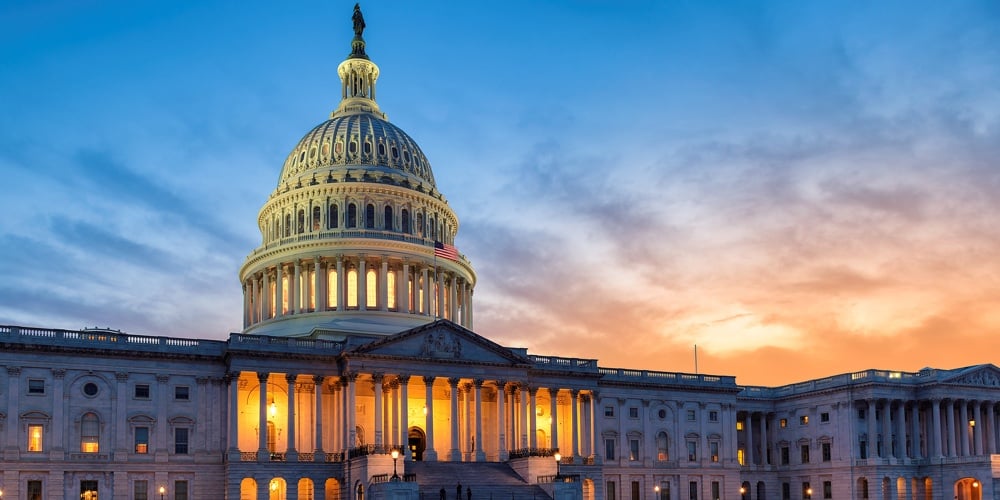The credit union tax exemption: How Congress got it right

Bankers love to throw stones and call for Congress to revisit credit unions’ tax exemption. The Federal Credit Union Act was passed during the Great Depression, in 1934, with an amendment added in 1937 that made federal credit unions tax exempt. For nearly 90 years this policy has remained in place because credit unions provide a valuable social service: safe, secure, reliable, and affordable financial products and services to all Americans – especially in areas banks have left.
The Great Depression is often characterized by the sustained bank runs that happened after the stock market crash in 1929. While today’s financial system is much stronger and more resilient than it was 100 years ago, bank runs are no longer a thing of the past. Three of the four largest bank failures in U.S. history have happened in the last couple of months, costing billions of dollars. Credit unions simply haven’t had these issues with safety and soundness.
It’s clear the banking industry doesn’t prioritize safety and soundness. They engage in risky behaviors to add to their bottom line even more. On top of the current bank failures, we all remember the 2008 financial crisis.
Banks work as for-profit entities. They are in the business of generating as much revenue as they can, and sometimes they work around laws to get that revenue. Wells Fargo was recently levied a $3.7 billion fine for mismanagement of consumer accounts, the largest fine ever dished out by the Consumer Financial Protection Bureau (CFPB).
As the President and CEO of the National Association of Federally-Insured Credit Unions (NAFCU), I’m baffled that bankers continue to pick this hypocritical fight. I’ve been with NAFCU for nearly 20 years. During that time, I’ve seen bankers consistently push a false narrative and make new points when their old arguments fail. In contrast, NAFCU doesn’t need to engage in any of these games.
Credit unions choose to be tax exempt. With that choice comes responsibility: the responsibility to provide consumers with safe, secure, and reliable financial services at an affordable cost. Credit unions have continued to live up to that mission.
There are over three times more credit union minority depository institutions (MDIs) than bank MDIs. Credit unions have seen five-fold growth in their small business loans since 2007, while small business loans from banks have remained flat. As a percentage of total loans, credit unions made more mortgage loans in low-to-moderate income neighborhoods than banks.
In addition, banks have closed branches at a rate of roughly 200 per month since 2020, meanwhile credit unions have added branches. Credit unions exist to serve all Americans, especially those in the exact same areas banks have left behind. At the core, credit unions are neighbors serving neighbors. The communities banded together to fill the cracks left by banks once their executives saw no profit left to make.
The tax exemption argument isn’t even an argument. It’s a tactic bankers use to stifle competition. If credit unions have such a competitive advantage with this tax exemption, then why haven’t banks changed their own charters to those of credit unions? Simple. They don’t want the responsibility. Banks are closing up shop, selling their branches, and cutting vital services. Meanwhile, credit unions are adding branches coast to coast, filling voids left by banks, and providing access to capital for millions of Americans and small businesses.
While bankers turn over every stone for a justification to eliminate credit unions’ tax-exempt status, doing so would result in America losing $38 billion in tax revenue, $142 billion in GDP, and 900,000 jobs over the next 10 years, according to the Feinberg-Mead study. Even consumers who are not credit union members get a benefit from credit unions’ presence in the market and their competitive impact on rates, saving Americans $15 billion annually.
Banks have had their chance to do the right thing. They could put people over profits, but they didn’t then and they won’t now. Credit unions are the solution to the problem banks created. It’s also worth noting that nearly one-third of all banks are Subchapter S corporations and do not pay corporate income taxes. If banks knew what was good for them, they wouldn’t be talking about tax exemptions – or subsidies.
The credit union tax exemption remains in place because the industry earned it for their unwavering dedication to serving their members and communities. There’s a reason the tax exemption has bipartisan support. Congress should be proud for upholding this legislation for nearly 90 years and for backing an industry that, without fail, continues to put people over profits.

